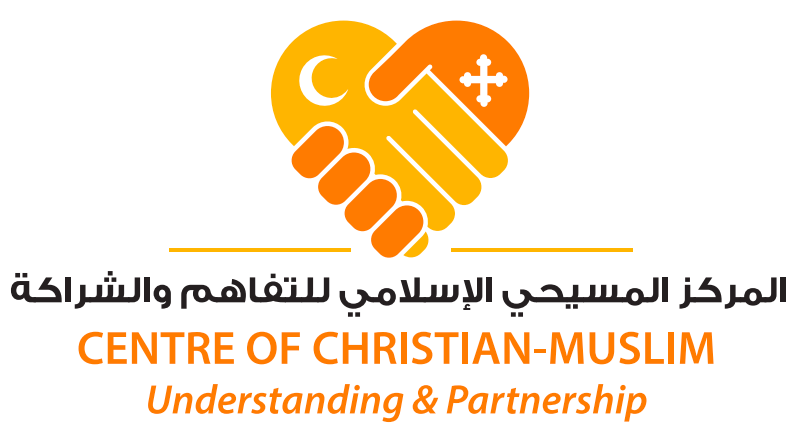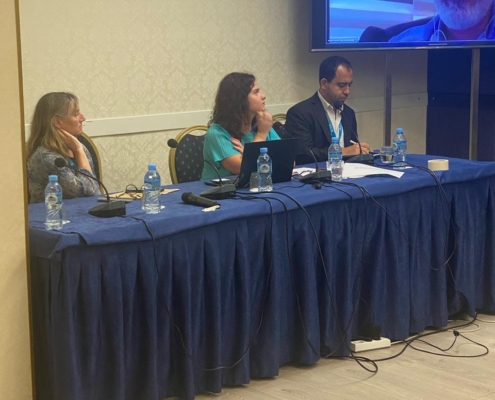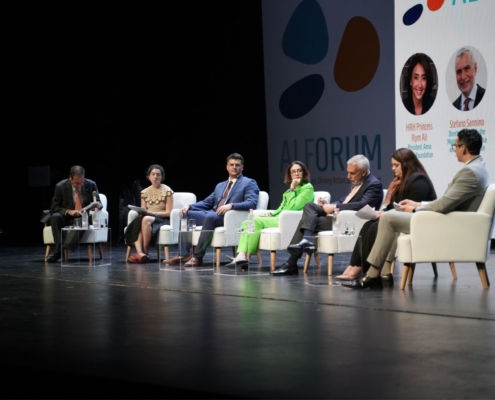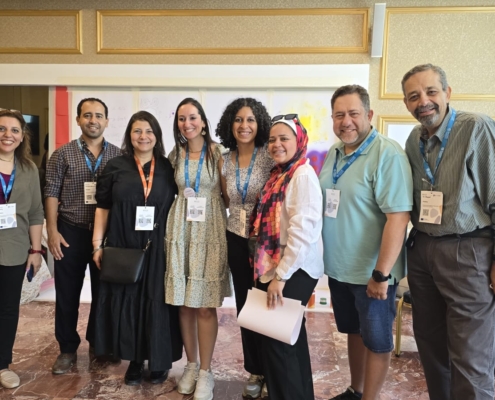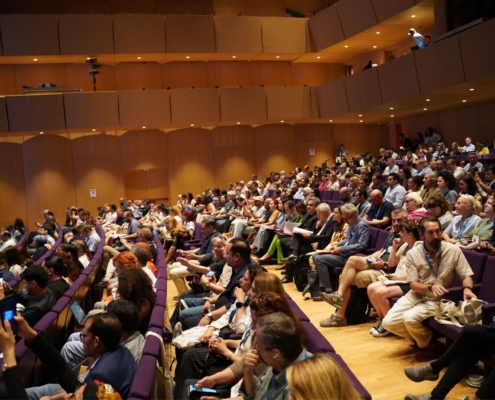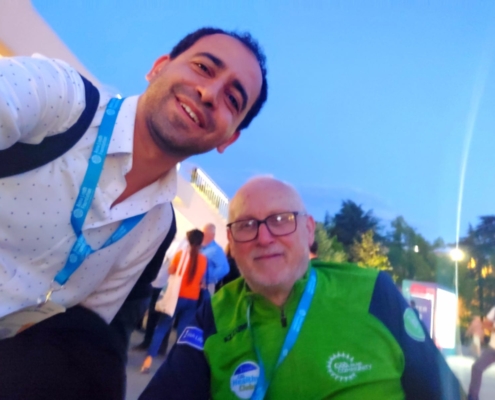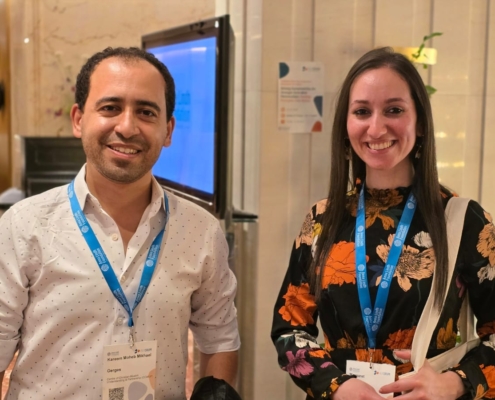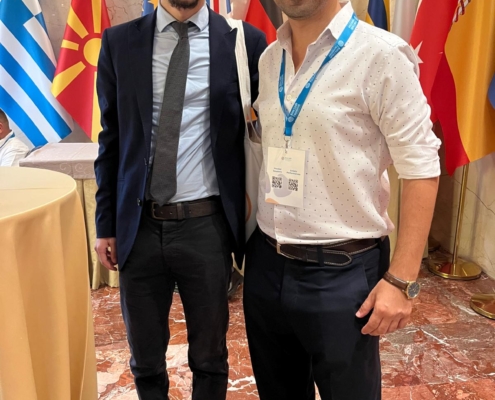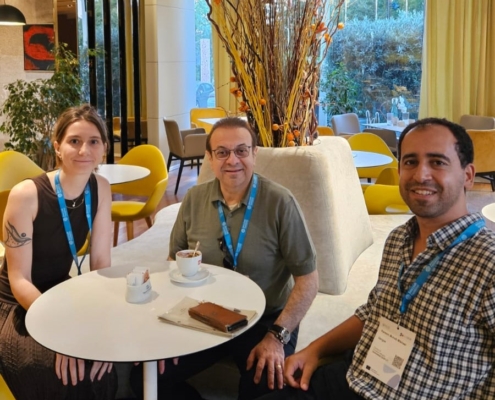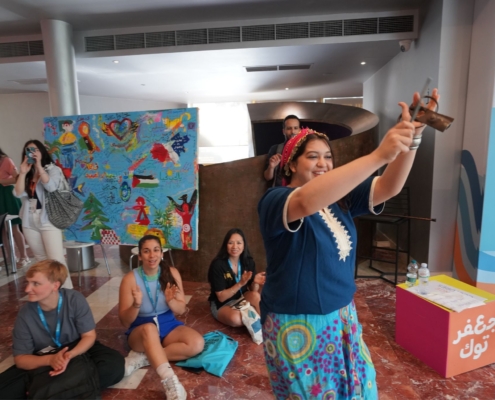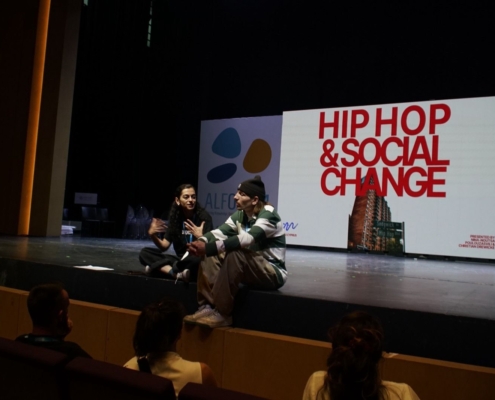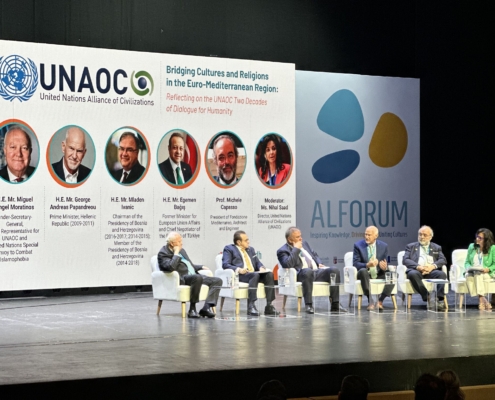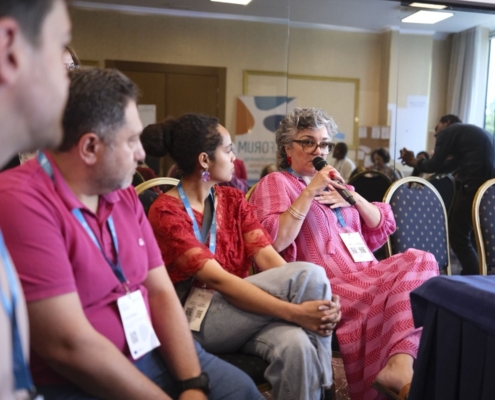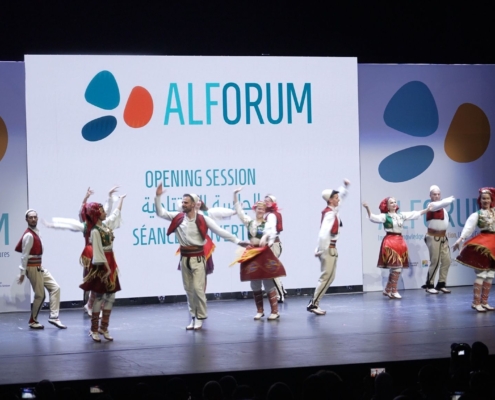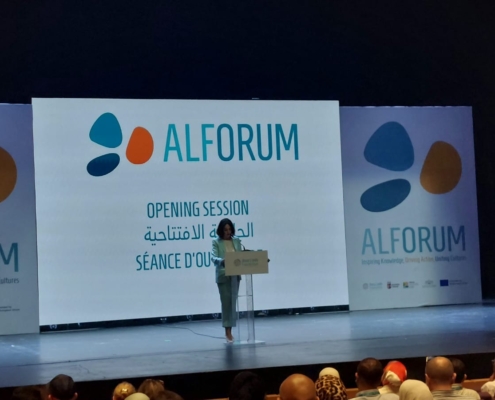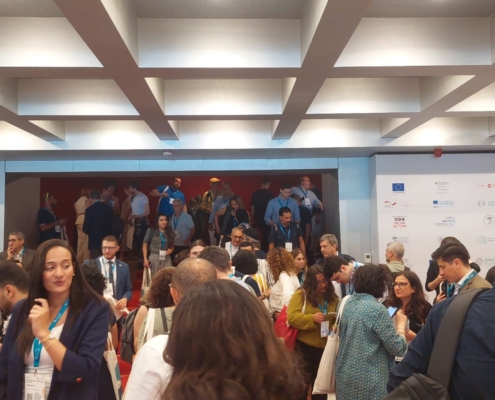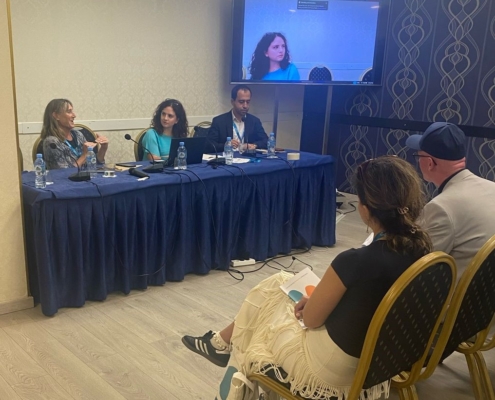From June 17 to 21, 2025, the Centre of Christian-Muslim Understanding & Partnership (CCMUP), participated in the Anna Lindh Foundation Forum (ALForum 2025), held in Tirana, Albania.
Representing CCMUP was Mr. Kareem Gerges, Director of International Partnerships & Communications, who was invited as a speaker on a panel titled “Bridging Beliefs: Interfaith Education and Cooperation for Inclusive Societies.”
The session brought together academics and practitioners to explore the critical role of interfaith education in fostering social cohesion, inclusion, and democratic values across the Euro-Mediterranean region. The discussion delved into systemic challenges and opportunities across formal education, teacher training, community peacebuilding, media innovation and public policies.
Mr. Gerges offered insights drawn from CCMUP’s interfaith grassroots and educational initiatives, such as Learning Journey, emphasizing how interfaith education systems can be quite a powerful transformative tools that humanize the “other” by building interfaith friendships, advancing religious literacy, dismantling prejudice, and promoting pluralistic, inclusive and peaceful democratic values, which are possible if the right conditions and resources are made available. He urged stakeholders to adopt long-term, equity-focused approaches that recognize the transformative power of inter-faith cooperation.
In his intervention, on the question of how the European Union (EU) can advance interfaith cooperation in the Euro-Mediterranean region, Mr. Gerges called for EU policies to not only expand their investments in civil society, but to also substantially increase their investments in public governmental policies that advance systemic reforms addressing root causes of extremism, intolerance and prejudice. “The EU must look beyond symptoms,” he said, “the EU should commit much more to address the root causes of such societal challenges by seriously addressing structural poverty, racism, and inequality, while expanding access to inclusive education and dignified work opportunities. In brief, the EU should invest much more to protect and advance human rights for everyone. Investments in civil society are important, but they are far from enough if not based on serious, long-term and large scale public policies that address the root causes of intolerance, discrimination and prejudice.”
He also addressed the credibility gap between EU rhetoric and action in the region, noting: “Many in the Middle East perceive the EU’s foreign policies as inconsistent with its stated values of human rights and peacebuilding. This perceived double standard diminishes trust, credibility and undermines cooperation. Consistency in the application of laws, values and principles is the basis of trust. And trust is the basis for cooperation. If people in the region perceive the EU as inconsistent, then they’ll be less likely to trust it and therefore less likely to cooperate with it.”
Mr. Gerges emphasized the need for policy coherence that aligns EU discourse on values with its practices, both internally and abroad.
Joining Mr. Gerges on the panel were:
- Prof. Abdul Nasser Solh, University Professor and Head of the Developmental Activity Association (DAA), Lebanon.
- Ms. Livia Grasseli, EU and International Project Manager, Ecole Società Cooperativa Sociale ETS / CASCO Learning
- The session was moderated by Ms. Sara Canali, PhD candidate at Ghent University and the United Nations University (UNU-CRIS).
The forum session provided concrete strategies for integrating interfaith dialogue into education, governance, and cultural frameworks, aligning with the broader goals of the ALForum 2025 to turn knowledge into meaningful action.
A Landmark Gathering for Intercultural Dialogue
This year’s ALForum marked two historic milestones: the 20th anniversary of the Anna Lindh Foundation (ALF) and the 30th anniversary of the Euro-Mediterranean Partnership (Barcelona Process). The forum, organized by ALF in collaboration with the Ministry for Europe and Foreign Affairs of Albania and the Municipality of Tirana, convened over 800 participants from 43 countries. Unfortunately, about 200 persons could not attend the forum due to the war in the Middle East, during that period. This edition also coincided with Tirana’s designation as the Mediterranean Capital of Culture and Dialogue 2025, shared with Alexandria, Egypt.
Held under the theme “From Knowledge to Action: Redefining Dialogue in the Euro-Mediterranean Region,” the ALForum 2025 emphasized the power of dialogue as a vehicle for resilience, innovation, and regional transformation.
In her opening remarks, HRH Princess Rym Ali, President of the Anna Lindh Foundation, underscored the urgency of intercultural cooperation, stressing that in a world facing uncertainty, our future is tied to that of the Euro-Mediterranean. Dialogue is not just an option; it is the only way forward. HRH emphasized how we are redefining dialogue—not as an exchange of conversations—but as a driving force that moves the region forward.
Other notable speakers included:
- H.E. Mr. Edi Rama, Prime Minister of Albania
- Mr. Stefano Sannino, Director General for the Middle East, North Africa, and the Gulf, European Commission
- Mr. Josep Ferré, Executive Director, Anna Lindh Foundation
- H.E. Mr. Miguel Ángel Moratinos, High Representative for the UN Alliance of Civilizations
- Mr. George Papandreou, Former Prime Minister of Greece
- Mr. Egemen Bağış, PhD, former EU Minister of Türkiye and member of the UNAOC High Level Advisory Council
- Mr. Mladen Ivanić, former President of Bosnia and Herzegovina
A Vision for the Future
The ALForum 2025 served not only as a reflection on two decades of inter-Mediterranean dialogue but also as a call to reimagine the future of cooperation across faiths, cultures, and nations. With sessions focusing on evidence-based research, action-driven policies, and unifying cultural experiences, the forum reaffirmed the foundational belief that inclusive dialogue is essential for peace, justice, and shared prosperity.
Mr. Kareem Gerges’ participation underscored CCMUP’s commitment to fostering mutual understanding and promoting inclusive policies grounded in interfaith cooperation. His contributions enriched a timely and critical conversation about the future of the Euro-Mediterranean partnership and the role of interfaith education and action in shaping democratic, resilient societies.
About the Anna Lindh Foundation (ALF) from its website:
ALF was established in 2005 born out of the vision set forth by the Barcelona Process. The Barcelona Process is a key initiative launched in 1995 that transformed Euro-Mediterranean relations. This initiative marked a turning point, bringing together the European Union and 12 southern and eastern Mediterranean countries for the first Euro-Mediterranean Conference. The resulting Euro-Mediterranean Partnership aimed to build a common space of peace, stability, shared prosperity and dialogue between cultures and civilisations.
Based in the heart of the Mediterranean in Alexandria, ALF carries this mission forward as an intergovernmental organisation that brings together civil society entities, institutions, governments, and change-makers from across the Euro-Mediterranean region. Through its diverse programmes and initiatives, the ALF creates spaces for people to meet, learn, and collaborate on relevant key themes. By exchanging knowledge and experiences, ALF builds meaningful networks that transform dialogue into action creating a ripple effect that empowers individuals and communities, spreading positive change across the region where diversity is celebrated and everyone’s voice is valued.
The organization was named in honour of Anna Lindh, the Swedish Foreign Minister who was murdered in 2003. The name was put forward by Egypt at a meeting 25 September 2003

